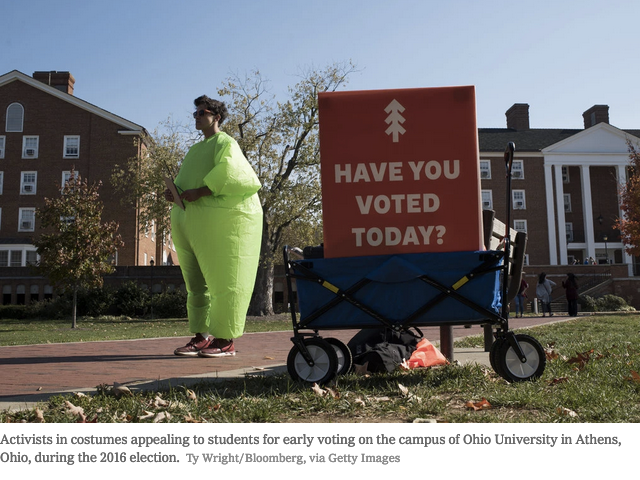Are you an American citizen with most of your life ahead of you? And do you care about any of the following: global warming, poverty and inequality, student debt, immigration policy, L.G.B.T.Q. rights, institutional racism, gun violence, access to health care, abortion rights, Social Security, or American military intervention?
These are some of the issues that elected representatives, or their appointed judges, will be wrestling with in the coming years and decades. If these issues — or others — matter to you, vote!
If you need added incentive, keep in mind that legislators across this country are actively working to make it harder for you to vote. They’re betting that technical barriers, hassles, costs and confusing rules will keep you away from the polls. So consider your vote as an act of rebellion — like the Boston Tea Party — a refusal to be disenfranchised.
Here’s why it’s urgent: During the 2014 midterm election, only 12 percent of eligible 18- to 21-year-old college or university students voted. In 2016 — with the presidency at stake — less than half of college undergraduates voted. We know these figures down to the campus level for 1,100 schools thanks to the National Study of Learning, Voting and Engagement. “Campuses get these numbers and say, ‘What?’,” said Nancy Thomas, who directs the Institute for Democracy and Higher Education at Tufts University, which conducts the study. “The numbers were so appalling.”




